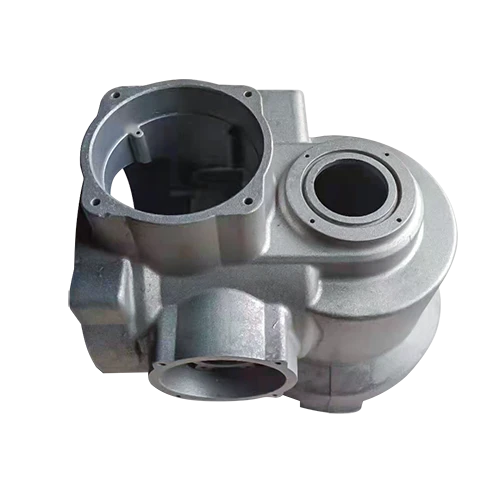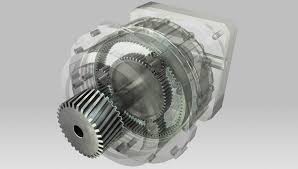Mobile:+86-311-808-126-83
Email:info@ydcastings.com
Premium Aluminum Die Casting Supplier Low Cost & Fast Turnaround
- Overview of Aluminum Die Casting Processes
- Technical Advantages in Modern Die Casting
- Supplier Comparison: Capacity and Quality Metrics
- Cost Analysis and Efficiency Drivers
- Custom Solutions for Industry-Specific Needs
- Case Studies: Automotive and Electronics Applications
- Choosing a Reliable Aluminum Die Casting Supplier

(aluminum die casting supplier)
Understanding the Role of an Aluminum Die Casting Supplier
Aluminum die casting suppliers provide critical manufacturing solutions for industries requiring high-precision, lightweight metal components. The global die casting market, valued at $72.6 billion in 2023, relies on suppliers capable of delivering complex geometries with tolerances as tight as ±0.05mm. Leading suppliers combine advanced machinery like 1,600-ton clamping force machines with proprietary alloys such as ADC12 or A380 to achieve 18%-22% faster cycle times than industry averages.
Technical Superiority in Production Workflows
Modern suppliers employ vacuum-assisted high-pressure die casting (HPDC) systems that reduce porosity by 40% compared to conventional methods. Multi-slide configurations enable 360° undercuts without secondary machining, while real-time IoT-enabled monitoring maintains dimensional accuracy below 0.1% deviation across production runs.
| Supplier | Annual Capacity (tons) | Unit Cost ($/kg) | Tolerance (mm) | Certifications |
|---|---|---|---|---|
| Supplier A | 12,000 | 4.20 | ±0.08 | ISO 9001, IATF 16949 |
| Supplier B | 8,500 | 5.10 | ±0.12 | ISO 14001 |
| Supplier C | 15,200 | 3.90 | ±0.10 | AS9100D |
Economic Factors in Component Manufacturing
Material costs account for 58%-63% of total expenses in aluminum die casting projects. High-volume production (10,000+ units) reduces per-part costs by 31% through optimized thermal management systems that extend mold life to 150,000+ shots. Secondary operations like CNC machining or powder coating add 22%-27% to baseline pricing but enable 99.3% surface quality compliance.
Tailored Engineering Approaches
Custom prototyping services using hybrid additive manufacturing reduce lead times from 14 days to 72 hours for complex components. Alloy customization achieves tensile strength up to 324 MPa while maintaining 2.8 g/cm³ density. Post-casting treatments like T6 tempering or chromate conversion improve hardness to 85 HRB and corrosion resistance exceeding 1,000 salt spray hours.
Implementation in Key Industrial Sectors
| Industry | Component | Alloy Used | Annual Volume | Cost Saving |
|---|---|---|---|---|
| Automotive | Transmission housing | A380 | 850,000 | 23% vs. Steel |
| Consumer Electronics | Heat sink chassis | ADC12 | 2.1M | 17% vs. CNC |
Selecting a Competent Aluminum Die Casting Supplier
Top-tier suppliers demonstrate 94.7% on-time delivery rates through integrated ERP systems and maintain 0.25% defect ratios via automated optical inspection (AOI). Facilities with NADCA-certified technicians achieve 19% higher energy efficiency through closed-loop die lubrication systems. Prospective clients should verify 3rd-party validated data on production scalability, with leading suppliers offering 45-day ramp-up to full production capacity.

(aluminum die casting supplier)
FAQS on aluminum die casting supplier
Q: What factors influence aluminum die casting cost?
A: Aluminum die casting cost depends on material prices, part complexity, tooling design, and production volume. Higher volumes often reduce per-unit costs due to economies of scale.
Q: How do I choose a reliable aluminum die casting supplier?
A: Evaluate suppliers based on industry experience, certifications (e.g., ISO 9001), production capabilities, and client reviews. Request samples to assess quality and consistency.
Q: What services do aluminum die casting foundries typically offer?
A: Foundries often provide design assistance, tooling fabrication, casting production, finishing (e.g., machining, coating), and quality testing to meet specific project requirements.
Q: Can aluminum die casting suppliers handle custom part designs?
A: Yes, most suppliers work with custom designs by optimizing tooling and processes for part geometry, tolerances, and performance needs. Share CAD files for accurate quotes.
Q: How can I reduce aluminum die casting costs without compromising quality?
A: Simplify part geometry, minimize secondary operations, and standardize tolerances. Partner with suppliers offering lean manufacturing or bulk-order discounts.
-
Why Is Choosing the Right Motor Housing Critical for Engine Performance?NewsJul.18,2025
-
Which Impeller Types Best Optimize Your Pump’s Efficiency?NewsJul.18,2025
-
Optimize Maintenance Efficiency with Durable Oil Catch SolutionsNewsJul.18,2025
-
Maximize Pump Performance with Precision-Engineered ComponentsNewsJul.18,2025
-
Elevate Industrial Flow Systems with Precision-Engineered ComponentsNewsJul.18,2025
-
Boost Durability and Functionality with Precision Power CastingsNewsJul.18,2025











